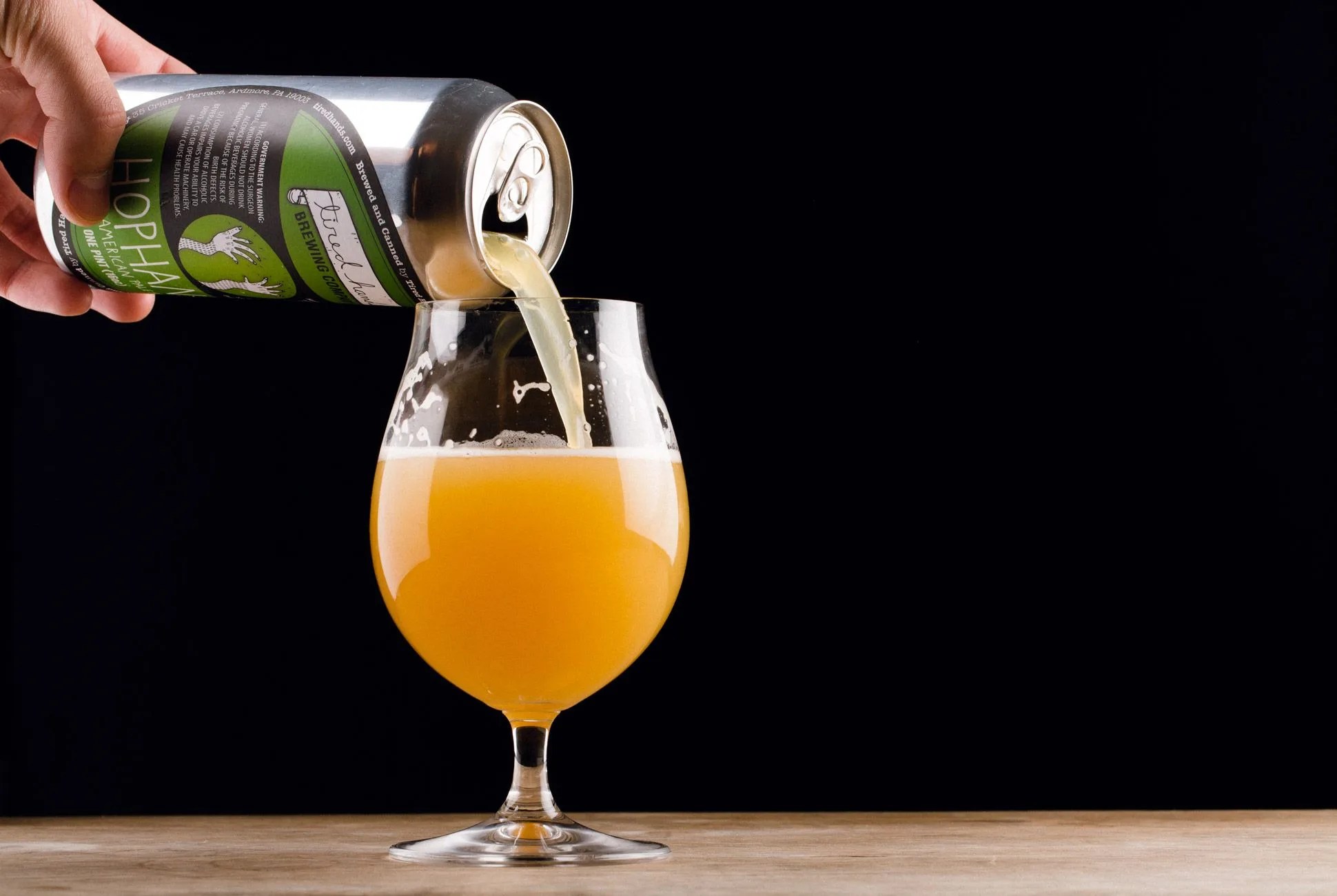For fans of the new and weird beer birthed by America’s long-developing craft beer movement, the most controversial recent addition is an American pale ale called HopHands, brewed by Tired Hands Brewing Company in Southeastern Pennsylvania. On BeerAdvocate, the most visited beer review site in the America, HopHands is rated by site users at a 91, which translates to “Outstanding.” The same beer is rated by Jason Alström, who, along with his brother Todd, represents “The Bros” rating on the site, a score that carries with it the ethos of the founders of the nation’s most influential beer site, and, more recently, monthly print magazine. His rating was a 64, which earns a “Poor.” The difference of 27 points represents the largest chasm between The Bros and the public I’ve ever found on the site.
The review that accompanies Jason’s rating reads: “Not feeling it with this brew, extremely cloudy and a mess to say the least. Staff at the pub should not be pouring it. Milkshake beers are not a trend or acceptable with traditional or even modern styles… No excuses. Carbonation seemed off, a muddled mess.” The term milkshake is commonly used to refer to an unfiltered beer with an aggressive amount of haze, typically from oats, hops and yeast — although too much yeast can indicate a beer that’s not entirely fermented. (Tired Hands Brewing Company has since brewed a lineup of coveted beers with “milkshake” in the name; however, whether this is just a coincidence is unknown.)
2016 is a time when beer critics can no longer write “not a trend or acceptable with traditional or even modern styles” as justification for dismissing a beer.
HopHands, as a beer, is a hazy yellow American pale ale with an intense, floral aroma. Its taste is a severe departure from the smell, with a slight hoppiness that gives way to dryness that’s reminiscent of something champagne yeast might produce. Far from the juicy, fruity IPAs that have dominated mainstream craft consumption, it’s a unique beer that’s traded and sold on the beer black market, where coveted bottles and cans change hands via FedEx mailers and heavy UPS packages. HopHands as an idea is much more significant. It’s a symbol of rapid change in the craft beer world.
The Alström brothers were visionaries when they founded BeerAdvocate in 1996, around the same time as the founding of Stone Brewing Co. and Russian River Brewing Company. It was the perfect website for an era of homebrewers-turned-brewery-founders that had watched Brooklyn Brewery, Sierra Nevada and Anchor Brewing churn out great beer in the 1980s, when macro beer was the only taste most drinkers knew, and wanted to jump in. The site’s slogan, “Respect Beer,” was coined when they “realized that it’s essential for everyone to drink and think differently if we hope to raise beer’s perception amongst the masses.” But now it seems that time has pushed beer past its critics.
2016 is a fantastic time to be a drinker of craft beer, and HopHands is proof. On Alström’s website, in the list of Top 250 Beers, the top three come from two breweries: Tree House Brewing, founded in 2011, and Toppling Goliath Brewing, founded in 2009. Relatively new breweries across the country are pushing the craft beer movement forward with some of the weirdest, and best, beer ever produced. IPAs brewed with mangos and white chocolate. Wild sours aged in whiskey barrels. Imperial IPAs brewed with 400 pounds of passionfruit and without any IBUs — International Bittering Units, a large part of the taste profile of traditional Imperial IPAs. If I’m losing you it’s because craft beer has reached a new height of experimentation. Some hits, some misses. All new.
2016 is also a time when beer critics can no longer write “not a trend or acceptable with traditional or even modern styles” as justification for dismissing a beer. Whether it’s the freshness of Hill Farmstead Brewing, the oakiness of Weyerbacher Brewing or the distinctly drinkable beers of Suarez Family Brewery — to give examples of Tired Hands’ peers in the eastern states — there is no bucket that beer sits in. It is high and low class. It is of the people and it is of the mustached snobs. And it’s going a lot of places, not all of which you have to be a fan of; but very rarely do they end up “Poor.”

